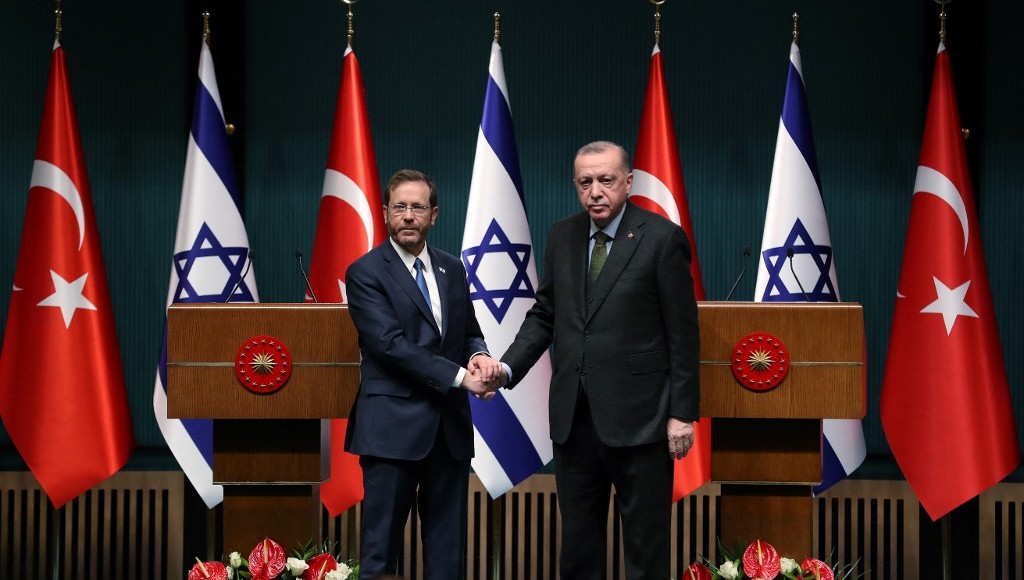Fatih Yurtsever*
On December 29, 2023, South Africa initiated proceedings against Israel at the International Court of Justice (ICJ). It alleged that Israel had violated the 1948 Convention on the Prevention and committed acts of genocide against the Palestinians in the Gaza Strip, particularly since October 7, 2023.
While the Turkish government, led by President Tayyip Erdoğan, has publicly condemned Israel’s military actions in Gaza, its rhetoric suggests genocide. This approach appears to leverage the Turkish people’s sensitivity towards the Palestinian issue and the deaths in Gaza for political gain. However, the Erdoğan administration has not yet taken formal legal steps in this context.
The 1948 Convention on the Prevention and Punishment of the Crime of Genocide, a cornerstone of international humanitarian law, serves as the legal backbone of South Africa’s case against Israel at the ICJ. This convention, ratified in the aftermath of the Holocaust, defines genocide in legal terms and sets out the obligations of states to prevent and punish this most heinous crime. According to the convention, genocide encompasses a range of acts committed with the intent to destroy, in whole or in part, a national, ethnic, racial or religious group. These acts include killing members of the group, causing serious bodily or mental harm, deliberately inflicting conditions calculated to bring about the group’s physical destruction, imposing measures to prevent births and forcibly transferring children.
The ICJ is the UN’s highest court for deciding disputes between states. It is made up of 15 judges elected by the UN General Assembly and Security Council for nine-year terms. One of the court’s mandates is to rule on disputes arising from the 1948 Genocide Convention.
The Genocide Convention has been ratified or acceded to by 153 states (as of April 2022, with Zambia). Another 41 United Nations member states have yet to do so. Turkey became a party to the convention through accession, with Approval Law No. 5630 on the Genocide Convention, published in the Official Gazette on March 29, 1950. The convention entered into force for Turkey on July 31, 1951, indicating Turkey’s commitment to the international legal framework for preventing and punishing acts of genocide.
As a member of the UN, Turkey is entitled to apply for intervention in cases at the ICJ. The procedure for such an intervention is outlined in Articles 62 and 63 of the ICJ Statute. Article 62 permits a state to request intervention if it believes it has an interest of a legal nature that could be affected by the court’s decision. The ICJ, however, retains the discretion to either accept or reject applications for intervention. Given Turkey’s pronounced opposition to Israel’s actions in Gaza, as evidenced by President Erdoğan’s strong condemnations, it is anticipated that Turkey may seek to intervene in the case at the ICJ in support of Palestine.
While the Turkish government, led by President Erdoğan, has publicly condemned Israel’s military actions in Gaza, describing them in terms that suggest genocide, it has not yet taken any concrete steps. One of the concrete steps to be taken by the Erdogan government in this regard could be to become a party in favor of Palestine in the case filed by South Africa, similar to Germany’s application to the ICJ to become a party in favor of Israel.
In Turkish criminal law, the crime of genocide is defined in Article 76 of the Turkish Penal Code (Law No. 5237), which has been amended in line with the United Nations Convention on the Prevention and Punishment of the Crime of Genocide. Turkey has obligations under international law, including the Genocide Convention, to prevent and punish acts of genocide. In this context, the Erdogan government can file a criminal complaint in Turkish courts under Article 76 of the penal code against Israeli civilian and military officials who it believes have committed genocide in Gaza.
However, the Erdoğan administration’s main objective appears to be exploiting the sensitivity of Arab and Turkish public opinion on the Palestinian issue through political rhetoric. Taking concrete steps on this issue could worsen Turkey’s relations with Israel. Since the Israeli government is well aware of President Erdoğan’s political style, it won’t take Erdoğan’s genocide rhetoric seriously unless concrete steps are taken. This is why the volume of trade between Turkey and Israel continues to increase, and the fuel used by Israeli aircraft continues to be transported from Turkish ports to Israel.
The Turkish government’s persistent allegations of genocide against Israel, particularly in relation to military operations in Gaza, could potentially expose Turkey to similar accusations regarding its military activities in northern Syria. For instance, there is a hypothetical risk that Israel might bring a case against Turkey at the ICJ alleging genocide against the Kurdish population in that region. While these allegations form part of a complex geopolitical discourse, Turkey continues to engage in significant trade with Israel, which includes a range of exports and imports between the two nations. Additionally, Turkey’s relationship with Hamas, which it does not recognize as a terrorist organization, contrasts with the stance of much of the Western world.
* Fatih Yurtsever is a former naval officer in the Turkish Armed Forces. He is using a pseudonym out of security concerns.

